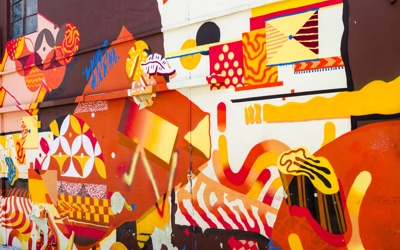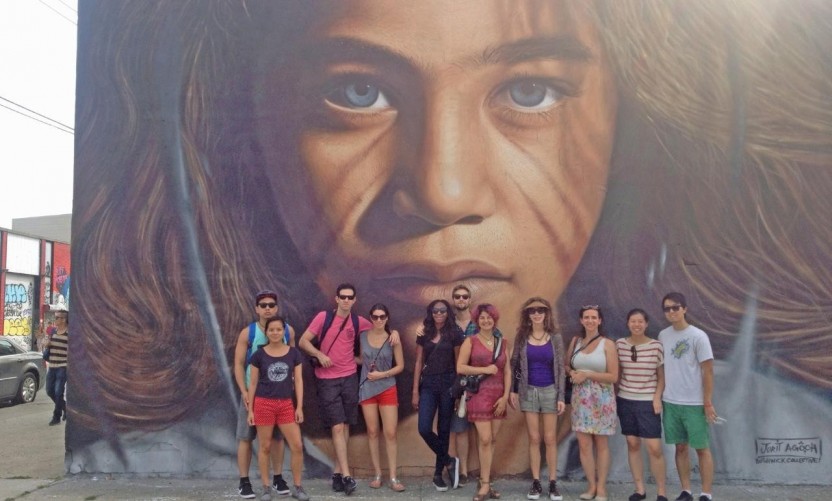
Graffiti & Street Art Walking Tour
2 h
A pied
A propos de cette activités
Graffiti: crime or cultural creation?
Discover an exciting world of graffiti taggers and street artists on this walking tour while viewing some of the most visually incredible murals in New York City and Brooklyn.
Today there is more awareness than ever about the imaginative artists who bring walls, buildings and even entire neighborhoods alive with their vibrant creations. Join this walking tour in Bushwick, Brooklyn to experience fascinating works by these globetrotting innovators. Prepare to view artistic murals large and small while exploring streets pulsating with creative energy. Eyewitness for yourself why the district is rapidly becoming a world-renown center of street art, as well as New York City's premiere place of graffiti culture. The murals are concentrated around an exhibition called the Bushwick Collective.
As we walk, expect to be immersed in the culture and lifestyle of today's urban artists, who hail from as far away as Europe, South America and even Asia. Learn about the top contemporary artists, their quirky personalities, and find out just how much people have been willing to pay for their work!
Discover the different styles and forms of the trade - which include murals, wheatpaste posters, tags and stencils. Learn about the techniques and varying nuances between them, and how they have developed and evolved over time.
Join this walking tour in Brooklyn if you desire to learn more about this exploding phenomenon, or if you simply seek to see for yourself the very best murals New York City has to offer!
Here are some of the things we learn about on the tour:
STYLES
Tags - Tags are words written in spray paint on a surface of any sort, including walls, storefronts, signs or doors. The words are often the name of a tagger or crew. They are generally just one color, a few inches or feet in size. The traditional motivation of a tag is to create exposure for oneself and broadcast the audacity of taking the risk to spray paint in a dangerous, inaccessible or openly public place. Larger productions known as "throw-ups" and "pieces" are more stylized and feature multiple colors.
Murals - Murals are generally more comprehensive and portray an image or scene. They often tell a story or express feelings of the artist. They tend to carry a social or political critique, satire or message. Murals are generally larger than tags but come in all sizes. Today artists are granted permission and even paid to produce murals for public display on businesses and public buildings.
Posters - Poster art is usually created in private, then brought to a public place and affixed to a surface. It is attached using an adhesive called wheat paste. In addition to paint, poster art can also incorporate multiple layers, cutouts, collages or stickers. The down side to a poster is that it's easier to remove than spraypaint and more succeptable to weather conditions. Therefore it tend to last less long than other graffiti mediums.
BACKGROUND
Early days
Modern street graffiti began in New York City in the early 1970's. Young teenagers growing up in impovershed, marginalized communities started "tagging" their names on walls in public places. They created alter egos, aliases that combined a nickname with a number, which was usually the digits of the street they lived on. Early leaders in the tagging world included people with street aliases like Lee163, Fab5Freddy and Tracy168. These graffiti pioneers experiemented with new styles and began the fad of tagging New York City's subway trains.
Recognition
While locally in New York graffiti was seen and treated as vandalism, enthusiasts in Europe recognized artistic value in the "tagging" and brought these young writers to their continent to produce and exhibit work. Graffiti was an instant hit in Europe and by the mid 1980's the writers, who in America were looked upon as criminals, were treated as celebrities in countries like Italy and Germany.
Rise of "Street Art"
By the late 1980's the graffiti culture in New York was faltering due to increased penalties and the absence of the original leaders, who were overseas or busy with other endeavors. Meanwhile in Europe the movement was just gaining traction. In the 1990's European artists experimented with new styles, which have become referred to as post-graffiti and street art. A French artist known as Blek Le Rat is attributed with introducing the stencil, a form of spray art which grew popular over the next decade. In recent years the stencil has been made famous by notorious British artist Banksy.
Mainstream Acceptance
By the 2000's, street art was followed around the world and top artists became household names. UK artist Banksy gained reverence and notoriety for his thought provoking images which appear in the unlikeliest of places. His work has subsequently commanded unheralded prices at top art auctionhouses. The rise of the internet and social media has allowed for fans to follow their favorite artists, and for writers to collaborate across continents, cultures and language barriers.
Controversy
The acceptance of street art into mainstream art circles has created social controversies. In late 2012 a Banksy piece disappeared from a London wall and resurfaced at a luxury art auction in Miami, Florida. Residents of its original London neighborhood expressed protest. They felt strongly that as a work of art it belonged to the community where it was created, and that it should be returned. The auction went ahead nonetheless and the piece was sold to a private collector for 1.1 million dollars.
Bushwick Collective
The murals we view on the tour are concentrated around an urban art exhibition called the Bushwick Collective. It was founded in 2012 by Joseph Ficalora - a neighborhood personality and business owner - to beautify a formerly blighted area with vibrant art. Joe is inspired by his deceased father and mother - and the art is dedicated to them. The Bushwick Collective brings together artists from around the world, legendary NYC graffiti artists, and local Bushwick talent.
Read more
Voir moins
Discover an exciting world of graffiti taggers and street artists on this walking tour while viewing some of the most visually incredible murals in New York City and Brooklyn.
Today there is more awareness than ever about the imaginative artists who bring walls, buildings and even entire neighborhoods alive with their vibrant creations. Join this walking tour in Bushwick, Brooklyn to experience fascinating works by these globetrotting innovators. Prepare to view artistic murals large and small while exploring streets pulsating with creative energy. Eyewitness for yourself why the district is rapidly becoming a world-renown center of street art, as well as New York City's premiere place of graffiti culture. The murals are concentrated around an exhibition called the Bushwick Collective.
As we walk, expect to be immersed in the culture and lifestyle of today's urban artists, who hail from as far away as Europe, South America and even Asia. Learn about the top contemporary artists, their quirky personalities, and find out just how much people have been willing to pay for their work!
Discover the different styles and forms of the trade - which include murals, wheatpaste posters, tags and stencils. Learn about the techniques and varying nuances between them, and how they have developed and evolved over time.
Join this walking tour in Brooklyn if you desire to learn more about this exploding phenomenon, or if you simply seek to see for yourself the very best murals New York City has to offer!
Here are some of the things we learn about on the tour:
STYLES
Tags - Tags are words written in spray paint on a surface of any sort, including walls, storefronts, signs or doors. The words are often the name of a tagger or crew. They are generally just one color, a few inches or feet in size. The traditional motivation of a tag is to create exposure for oneself and broadcast the audacity of taking the risk to spray paint in a dangerous, inaccessible or openly public place. Larger productions known as "throw-ups" and "pieces" are more stylized and feature multiple colors.
Murals - Murals are generally more comprehensive and portray an image or scene. They often tell a story or express feelings of the artist. They tend to carry a social or political critique, satire or message. Murals are generally larger than tags but come in all sizes. Today artists are granted permission and even paid to produce murals for public display on businesses and public buildings.
Posters - Poster art is usually created in private, then brought to a public place and affixed to a surface. It is attached using an adhesive called wheat paste. In addition to paint, poster art can also incorporate multiple layers, cutouts, collages or stickers. The down side to a poster is that it's easier to remove than spraypaint and more succeptable to weather conditions. Therefore it tend to last less long than other graffiti mediums.
BACKGROUND
Early days
Modern street graffiti began in New York City in the early 1970's. Young teenagers growing up in impovershed, marginalized communities started "tagging" their names on walls in public places. They created alter egos, aliases that combined a nickname with a number, which was usually the digits of the street they lived on. Early leaders in the tagging world included people with street aliases like Lee163, Fab5Freddy and Tracy168. These graffiti pioneers experiemented with new styles and began the fad of tagging New York City's subway trains.
Recognition
While locally in New York graffiti was seen and treated as vandalism, enthusiasts in Europe recognized artistic value in the "tagging" and brought these young writers to their continent to produce and exhibit work. Graffiti was an instant hit in Europe and by the mid 1980's the writers, who in America were looked upon as criminals, were treated as celebrities in countries like Italy and Germany.
Rise of "Street Art"
By the late 1980's the graffiti culture in New York was faltering due to increased penalties and the absence of the original leaders, who were overseas or busy with other endeavors. Meanwhile in Europe the movement was just gaining traction. In the 1990's European artists experimented with new styles, which have become referred to as post-graffiti and street art. A French artist known as Blek Le Rat is attributed with introducing the stencil, a form of spray art which grew popular over the next decade. In recent years the stencil has been made famous by notorious British artist Banksy.
Mainstream Acceptance
By the 2000's, street art was followed around the world and top artists became household names. UK artist Banksy gained reverence and notoriety for his thought provoking images which appear in the unlikeliest of places. His work has subsequently commanded unheralded prices at top art auctionhouses. The rise of the internet and social media has allowed for fans to follow their favorite artists, and for writers to collaborate across continents, cultures and language barriers.
Controversy
The acceptance of street art into mainstream art circles has created social controversies. In late 2012 a Banksy piece disappeared from a London wall and resurfaced at a luxury art auction in Miami, Florida. Residents of its original London neighborhood expressed protest. They felt strongly that as a work of art it belonged to the community where it was created, and that it should be returned. The auction went ahead nonetheless and the piece was sold to a private collector for 1.1 million dollars.
Bushwick Collective
The murals we view on the tour are concentrated around an urban art exhibition called the Bushwick Collective. It was founded in 2012 by Joseph Ficalora - a neighborhood personality and business owner - to beautify a formerly blighted area with vibrant art. Joe is inspired by his deceased father and mother - and the art is dedicated to them. The Bushwick Collective brings together artists from around the world, legendary NYC graffiti artists, and local Bushwick talent.
Caractéristiques
Tourisme
85%
Culturel
75%
Original
45%
Sport
25%
Collections
Cette expérience fait partie de ces collections
Vous devriez aussi aimer









 Tout voir 57 Collections
Tout voir 57 Collections
Cliquez pour dévouvrir d'autres expériences
Tout voir
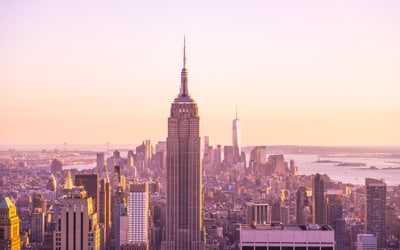
Collections
One World Observatory
46 Activités
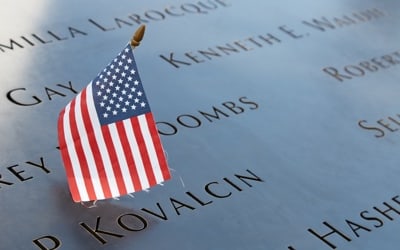
Collections
9/11 Memorial & Museum
90 Activités

Collections
High Line Park
14 Activités
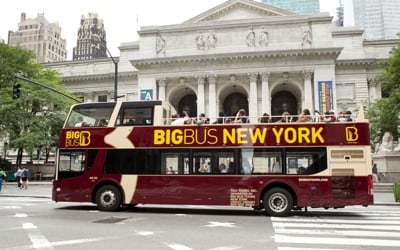
Collections
Bus Tour
86 Activités
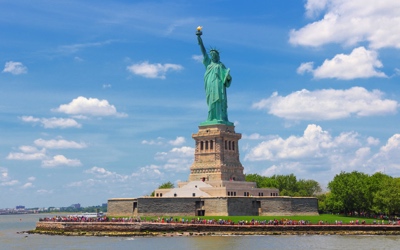
Collections
Statue of Liberty
146 Activités
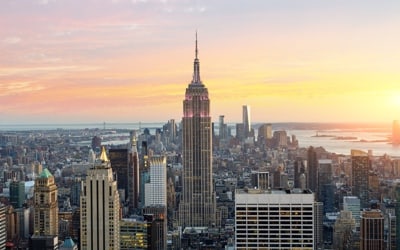
Collections
Empire State Building
24 Activités
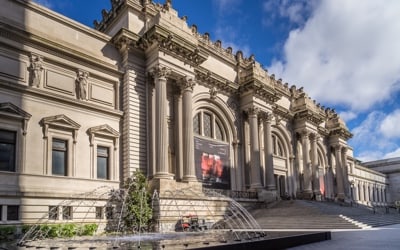
Collections
Museums
128 Activités
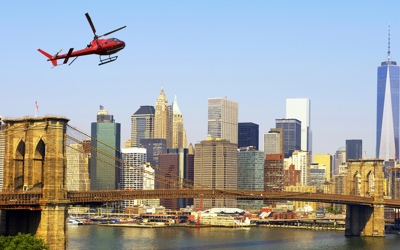
Collections
Helicopter
41 Activités
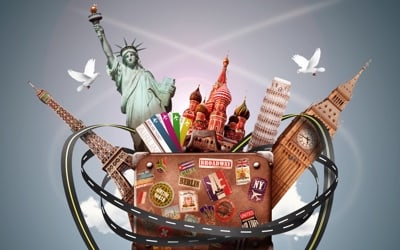
Collections
City Pass
40 Activités
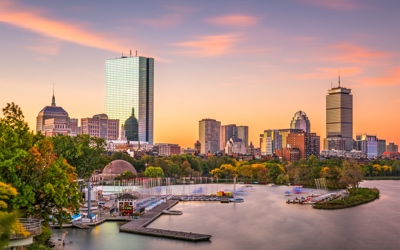
Collections
From New York
110 Activités



